
Albert I, Soldier King

Transformation of a Photograph
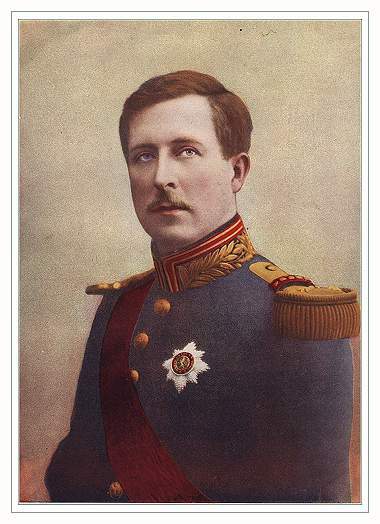
An official portrait
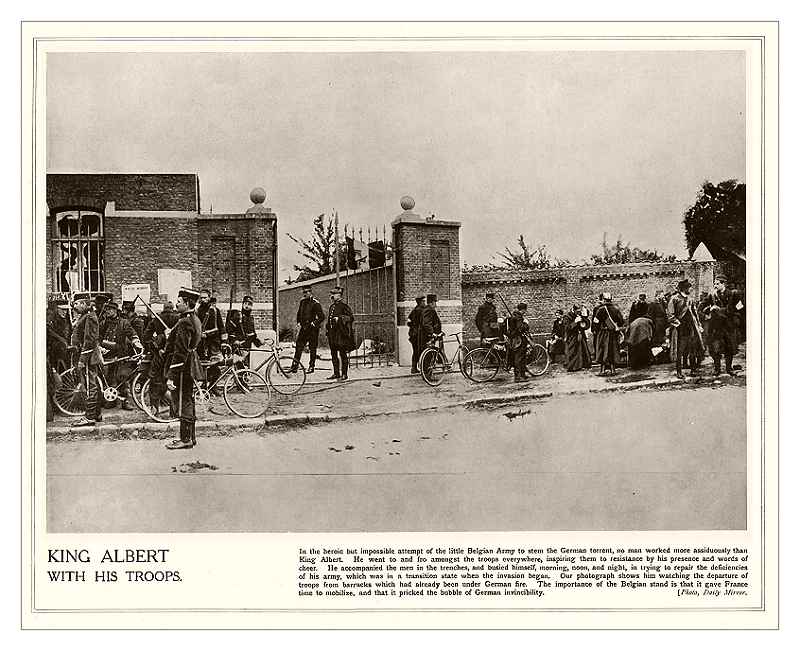
Photo number 1 : the original article. No cropping or retouching
This unretouched photo originally appeared in an early edition of 'Nelson's Portfolio of War Pictures', a magazine that published large-sized quality photographs of the war. It is a photograph taken of a somewhat forelorn looking King Albert reviewing a rag-tag detachment of Belgian soldiers preparing to leave what appears to be a damaged garrison building during the siege of Antwerp sometime in September or October 1914. On the far right we can see a chaplain/priest kneeling and probably a civilian newsreporter talking to a soldier.
With some inventive cropping and imaginative retouching and inspired rearranging of figures, this photograph was transformed into several heroic illustrations that appeared on the front page of many news publications around the world and was used extensively in books and history volumes afterwards as well. .
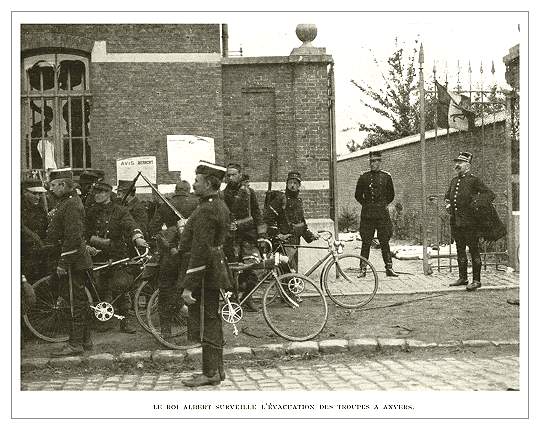
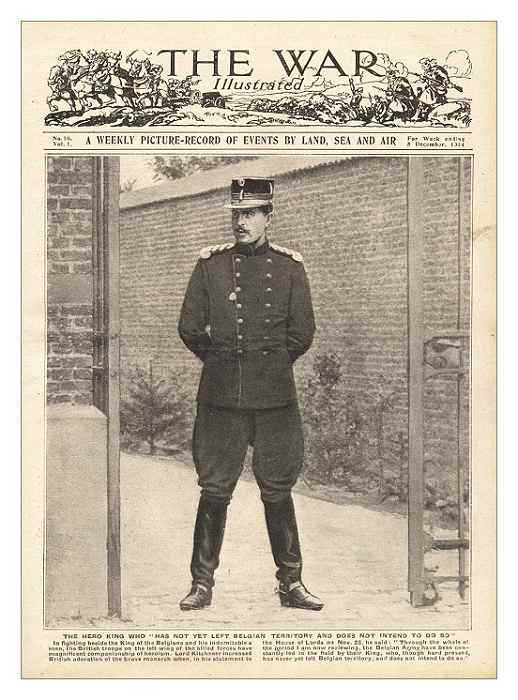
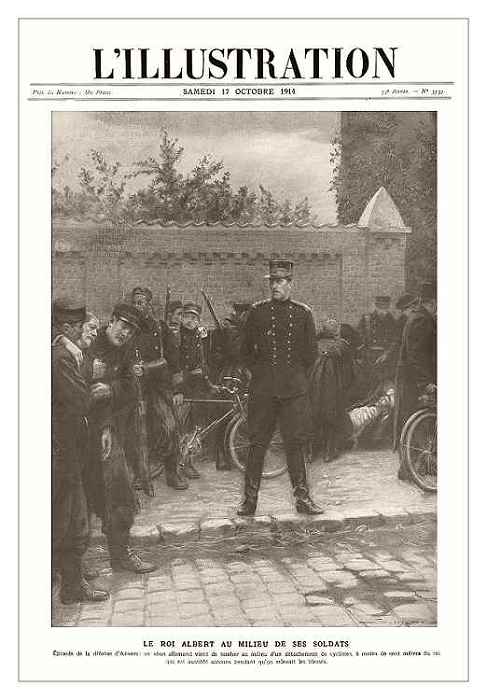
A heroic, inspiring and very tidy scene, fit for first page publication in newsmedia around the world. There are no broken windows, the gardens are tidy, the King strikes an imposing and resolute figure and the troops, though overwhelmed by the enemy and seemingly at the point of exhaustion, appear doggedly determined to see things through to the end. Their King and commander-in-chief sets a fitting example indeed. Brave Little Belgium at her best !
In spite of all of the retouching and changing around of figures, nothing sinister or malicious need necessarily be seen in the ultimate results, patriotically inspiring and fake though they may be. Rather consider the norms of the times and the needs of newspublishers to present simple, recognizable, inspiring and tidy scenes to a public not yet used to seeing candid photographs. Photography was still a somewhat new medium insofar as magazine publication went, and editors and illustrators alike, were more used to working within conventional boundries in regards to esthetics and posing of figures. No wonder that they liked neat and recognizably heroic scenes instead of the shoddy appearance of the grim everyday reality of war. Certainly at this early date in the war, the public was more apt to think in terms of remembered classical military art or the carefully posed figures in a theater piece or opera. By the end of the war many illusions would be dispelled and the public would come to learn that war, especially in the modern Great War style, was a bloody, untidy mess.
Compare these ilustrations to the first, unretouched photo of a very despondent king and his rag-tag army. In the end however, this army held the line and stood up to the test, appearances notwithstanding.

